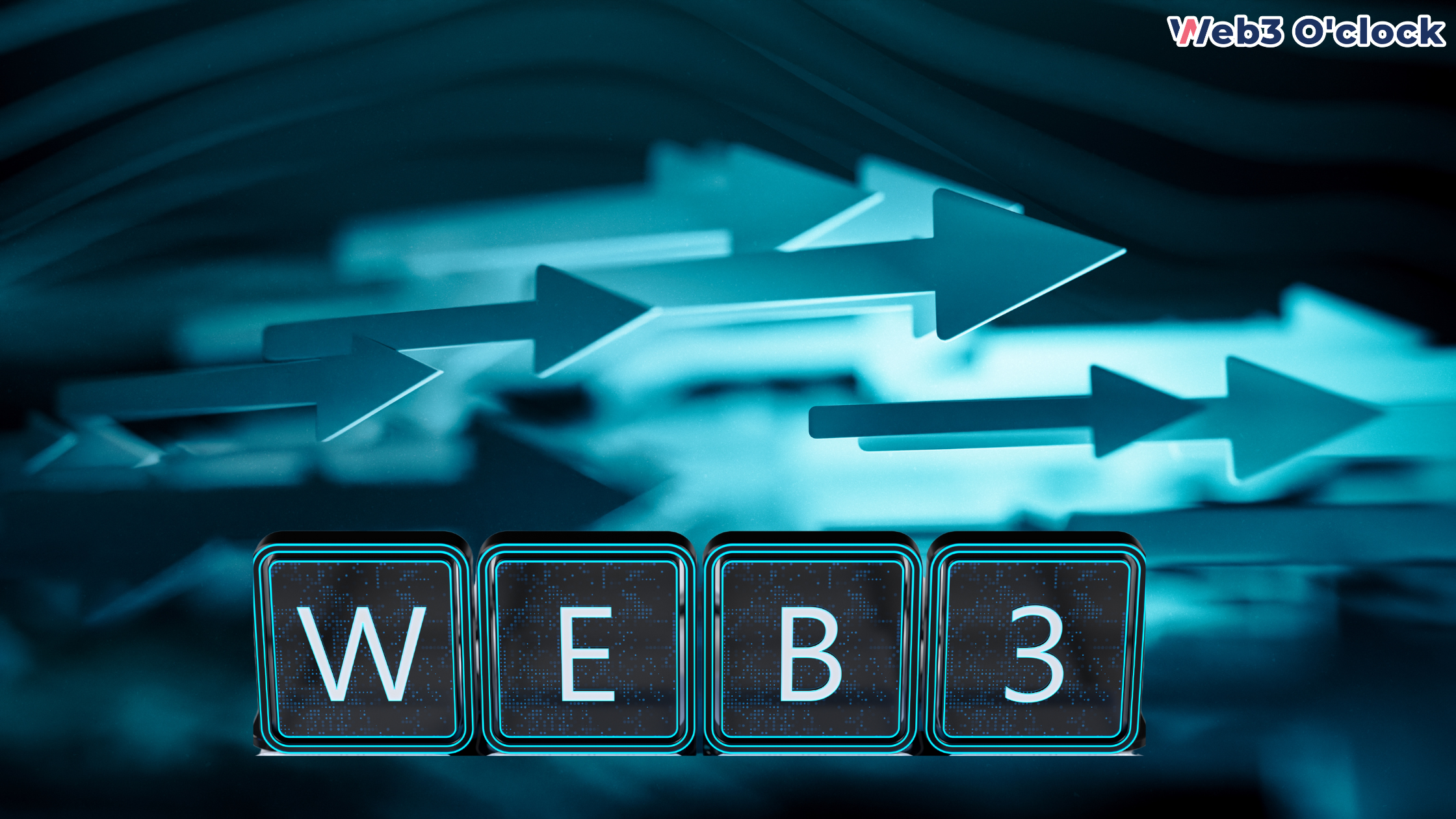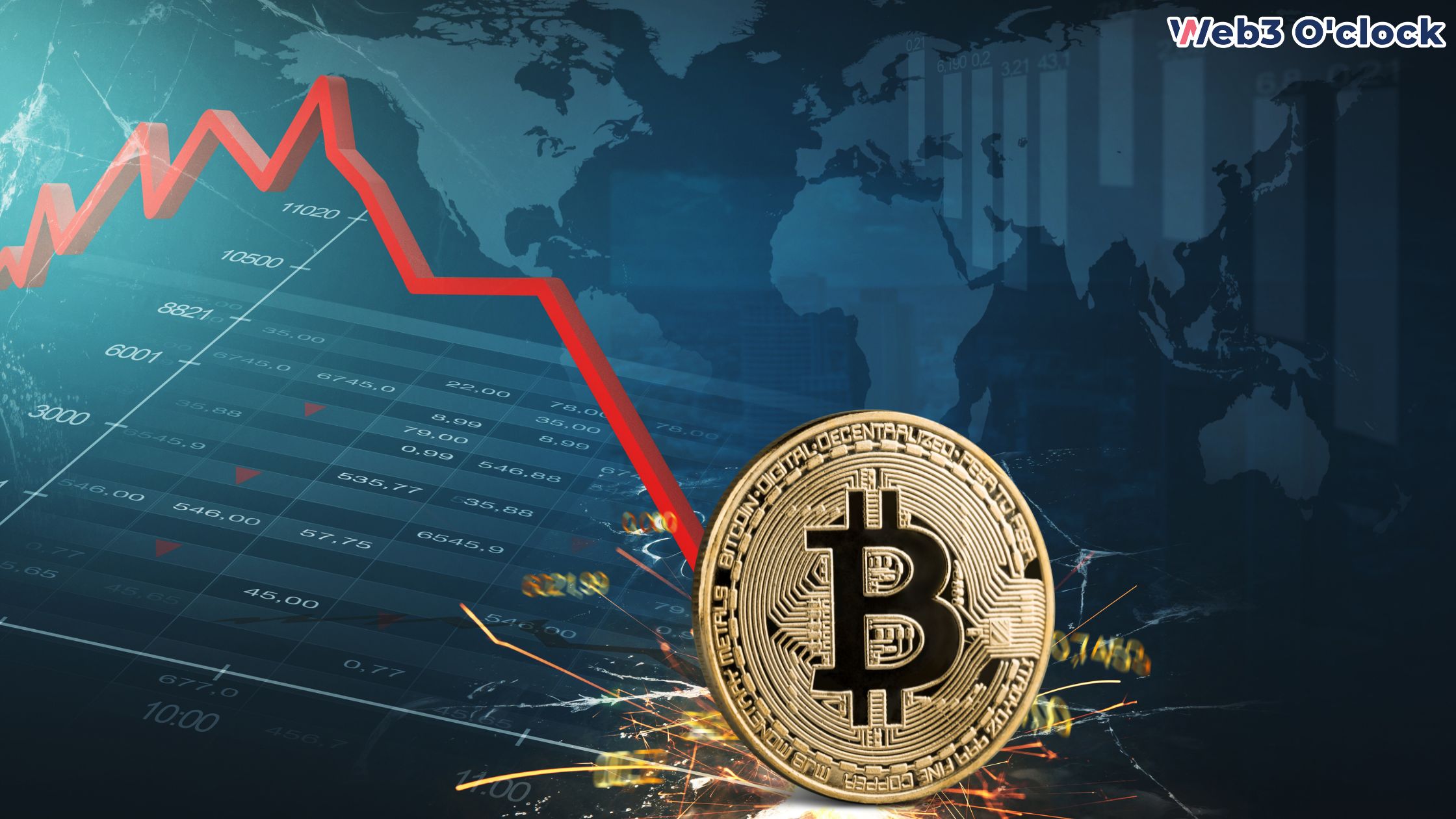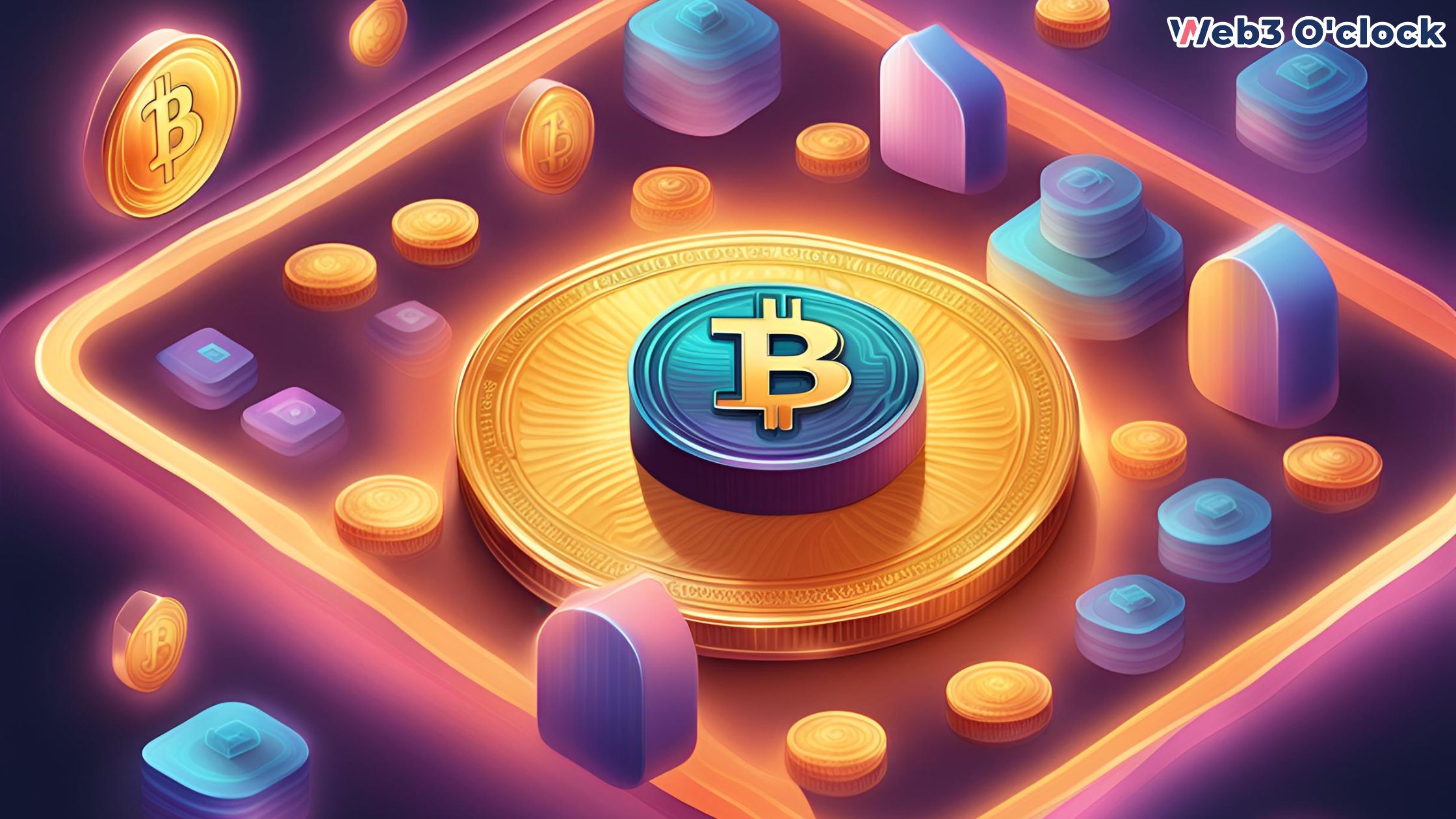DeFi has gained immense popularity in recent years, revolutionizing the way we think about traditional financial systems. By leveraging blockchain technology, DeFi projects provide users with unprecedented control over their assets, transparent financial transactions, and opportunities to earn passive income.
In this blog, we’ll introduce you to some of the most promising DeFi tokens that are pushing the boundaries of innovation and transforming the financial landscape. These tokens offer a wide range of functionalities, from decentralized exchanges and liquidity provision to yield farming and blockchain infrastructure.
1. RenQ Finance (RENQ)
RenQ Finance has attracted crypto investors with its unique features that prioritize
decentralization, security, and transparency. Unlike centralized exchanges, RenQ offers a direct trading option through its wallet app, giving users complete control over their financial resources. It is an innovative multichain noncustodial decentralized exchange that establishes a cross-chain asset exchange network, connecting isolated blockchains. This enables users to engage in various activities such as swapping, farming, mining, staking, lending, borrowing, and shorting while retaining control of their assets.
2. Avalanche (AVAX)
Avalanche is a layer one blockchain platform for decentralized applications and custom blockchain networks. It aims to rival Ethereum as the most popular blockchain for smart contracts by offering higher transaction output of up to 6,500 transactions per second without compromising scalability.
Avalanche achieves this through its unique architecture, consisting of three individual blockchains: the X-Chain, C-Chain, and P-Chain. Each chain serves a distinct purpose, deviating from the approach taken by Bitcoin and Ethereum, where all nodes validate all transactions. Avalanche blockchains utilize different consensus mechanisms based on their specific use cases.
Since its mainnet launch in 2020, Avalanche has developed an ecosystem of DApps and DeFi. Projects such as SushiSwap and TrueUSD have integrated with Avalanche, and the platform continually works on improving interoperability with Ethereum through the development of bridges.
3. Uniswap (UNI)
Uniswap is a popular decentralized trading protocol known for facilitating the automated trading of DeFi tokens. As an automated market maker (AMM), it offers open and accessible token trading for anyone holding tokens while improving efficiency compared to traditional exchanges.
Uniswap addresses liquidity issues through automated solutions, avoiding the problems that plagued early decentralized exchanges. In September 2020, Uniswap introduced its own governance token, UNI, rewarding past users of the protocol. This token grants profitability potential and allows users to shape the future of the platform, which is a key feature of decentralized entities.
4. Chainlink (LINK)
Established in 2017, Chainlink is a blockchain abstraction layer that enables universally connected smart contracts. It utilizes a decentralized oracle network to securely interact with external data feeds, events, and payment methods, facilitating the integration of off-chain data into smart contracts.
Chainlink boasts a large open-source community of data providers, node operators, smart contract developers, researchers, and security auditors. The network ensures decentralized participation for all node operators and users looking to contribute. With trusted partners like Brave New Coin, Alpha Vantage, and Huobi, Chainlink has become a major player in the data processing field. Data providers can monetize their information by selling access directly to Chainlink.
As a decentralized network, Chainlink allows users to become node operators and earn revenue by running critical data infrastructure for blockchains’ success. It powers decentralized Price Feed oracle networks used by leading DeFi applications like Synthetix, Aave, Compound, and more, securing billions in value.
5. Lido DAO (LDO)
Lido is a liquid staking solution for Ethereum that enables users to stake their ETH without minimum deposits or the need to maintain infrastructure. Users can participate in on-chain activities such as lending to compound their returns.
LDO is the native utility token used within the Lido DAO for governance rights, managing fee parameters and distribution, and governing the addition and removal of Lido node operators. Lido DAO includes well-known members such as Semantic VC, ParaFi Capital, Libertus Capital, Terra, Bitscale Capital, StakeFish, StakingFacilities, Chorus, P2P Capital, and KR1. Key angel investors like Stani Kulechov of Aave, Banteg of Yearn, Will Harborne of Deversifi, Julien Bouteloup of Stake Capital, and Kain Warwick of Synthetix have also joined Lido DAO.
The individuals and organizations behind Lido DAO have a proven track record of excellence within the DeFi space.
These projects, including RenQ Finance, Avalanche, Uniswap, Chainlink, and Lido DAO, are pushing the boundaries of decentralized finance and revolutionizing the way users engage with digital assets and blockchain technology.
6. PancakeSwap (CAKE)
PancakeSwap, known as CAKE, is a decentralized finance (DeFi) application that operates as an automated market maker (AMM). It enables users to exchange tokens and participate in liquidity provision to earn fees and rewards.
Launched in September 2020, PancakeSwap is specifically designed for swapping BEP20 tokens on the Binance Smart Chain. By utilizing an automated market maker model, users can trade against liquidity pools created by other participants. To contribute to these pools, users deposit funds and receive liquidity provider (LP) tokens, known as FLIP, in return.
FLIP tokens represent users’ share of the pool and their entitlement to a portion of the trading fees. Additionally, PancakeSwap offers farming opportunities where users can deposit LP tokens and earn CAKE, the native token of the platform.
PancakeSwap provides a range of functionalities for users, including trading BEP20 tokens, providing liquidity to the exchange, earning fees through staking LP tokens, and even staking CAKE to earn more CAKE or tokens from other projects.
7. 1inch Network (1INCH)
The 1inch Network is a collective of decentralized protocols that work together to provide efficient, fast, and secure operations within the DeFi space.
The network’s flagship protocol is a decentralized exchange (DEX) aggregator known as 1inch. This innovative solution searches for the best deals across multiple liquidity sources, ensuring users obtain better rates compared to individual exchanges. To achieve this, the 1inch Aggregation Protocol utilizes the Pathfinder algorithm, which scans over 300+ liquidity sources across 10 different chains, including Ethereum, BNB Chain, Polygon, and more.
Since its launch, the 1inch DEX aggregator has garnered over 1 million users and facilitated over $150 billion in trading volume on the Ethereum network alone. Additionally, the 1inch Liquidity Protocol, another component of the network, offers advanced automated market maker (AMM) functionality that protects users from front-running attacks and provides attractive opportunities for liquidity providers.
The 1inch Limit Order Protocol is yet another feature offered by the network, enabling flexible and innovative limit order swap opportunities in the DeFi space. With dynamic pricing, conditional orders, and additional RFQ support, users can engage in various trading strategies, including stop-loss and trailing stop orders.
To streamline user interaction with the network’s features, the 1inch Wallet serves as a multichain mobile platform. It offers a user-friendly interface for secure storage, transactions, and staking capabilities, specifically designed to enhance the user experience.
The 1INCH token acts as both a governance and utility token within the 1inch Network. Token holders can stake their 1INCH tokens to participate in the network’s DAO governance, including the management of the 1inch DAO Treasury. Additionally, token holders can choose resolvers and earn a portion of the fees generated.
By utilizing the 1inch Fusion, users can stake their 1INCH tokens and receive Unicorn Power (UP). Subsequently, they can delegate their UP to any 1inch Fusion Resolver and start earning rewards. When staking, users have the option to set a custom or preset lock period, and their staked 1INCH tokens cannot be withdrawn without penalty until the designated lock period expires.
8. dYdX (DYDX)
DYDX (dYdX) serves as the governance token for the layer 2 protocol of the dYdX decentralized cryptocurrency exchange. This token facilitates the operation of layer 2 and allows traders, liquidity providers, and partners to actively contribute to the protocol’s future as a community.
Token holders have the right to propose changes on the dYdX layer 2, and they also benefit from token staking and trading fee discounts, providing them with profit opportunities.
The dYdX exchange is built on Starkwire’s StarkEx scalability engine, utilizing layer 2 technology for cross-margined perpetual trading. This scaling solution enhances transaction speed, eliminates gas costs, reduces trading fees, and lowers the minimum trade sizes on the platform.
As an open-source platform with smart contract functionality, dYdX offers users the ability to lend, borrow, and trade various crypto assets. While supporting spot trading, the platform’s main focus lies in derivatives and margin trading.
Founded in 2017 with significant venture capitalist funding of over $10 million, the dYdX exchange went live in 2019. The DXDY token, the platform’s governance token, had its initial coin offering (ICO) on September 9th, 2021.
9. Ankr (ANKR)
Ankr is a decentralized blockchain infrastructure provider that operates a global network of nodes across more than 50 Proof-of-Stake networks. This infrastructure plays a vital role in driving the growth of the crypto economy while offering a comprehensive suite of multi-chain tools for Web3 users.
Ankr offers various solutions for blockchain developers, including traditional APIs and a decentralized multi-chain network of public RPC nodes. These resources enable users to access blockchain data, execute code, and utilize tools like Ankr Scan to view on-chain information across different blockchains.
Ankr Earn simplifies staking, liquid staking, and other yield-earning opportunities, making them accessible to all crypto investors. The platform focuses on creating scalable and decentralized staking infrastructure to address the capital inefficiencies of Proof-of-Stake networks and similar consensus mechanisms.
Through Ankr’s learning tools, tutorials, and documentation, users can enhance their knowledge and become better users or developers of blockchain-based systems.
10. SushiSwap (SUSHI)
SushiSwap, represented by its token SUSHI, exemplifies an automated market maker (AMM). AMMs are increasingly popular among cryptocurrency users as they offer decentralized exchanges that utilize smart contracts to establish markets for various token pairs.
Launched in September 2020 as a fork of Uniswap, the leading AMM in the DeFi movement, SushiSwap aims to diversify the AMM market and introduce additional features not present in its predecessor. These features include enhanced rewards for network participants through the SUSHI token.
SushiSwap primarily functions as an AMM, enabling automated trading liquidity between different cryptocurrency assets. Its main user base consists of DeFi traders and entities seeking to capitalize on the booming market for project tokens and create liquidity.
By eliminating order books and addressing liquidity issues often encountered in traditional decentralized exchanges, AMMs provide efficient trading mechanisms. SushiSwap strives to improve upon Uniswap’s offerings by giving users greater influence over its operations and future development.
When transactions occur within its liquidity pools, SushiSwap charges a 0.3% fee. A portion of these fees is distributed to users holding the SUSHI token as rewards, which also grants them governance rights within the platform.
Conclusion
In conclusion, the top 10 DeFi projects highlighted above offer valuable opportunities for crypto traders to participate in the decentralized finance ecosystem. Each project brings unique features and benefits to the table, catering to various aspects of token swapping, liquidity provision, yield generation, and blockchain infrastructure.
FAQs
Why should I invest in DeFi tokens?
Investing in DeFi tokens can offer several advantages. Firstly, the DeFi market has experienced significant growth in recent years, showcasing its potential for high returns on investment. Additionally, DeFi tokens often grant holders governance rights, allowing them to participate in decision-making processes and shape the future development of the platforms they invest in. Furthermore, DeFi tokens provide access to various decentralized financial services, enabling users to earn passive income through staking, liquidity provision, or yield farming.
What factors should I consider when investing in DeFi tokens?
When investing in DeFi tokens, it’s crucial to consider several factors. Firstly, evaluate the project’s fundamentals, including its team, technology, and roadmap. Look for projects with experienced teams, robust security measures, and a clear vision for the future. Additionally, consider the project’s user adoption and community engagement, as these can impact the token’s value over time. It’s also essential to assess the tokenomics of the project, including its supply, distribution, and utility within the platform.
What are the risks associated with investing in DeFi tokens?
Investing in DeFi tokens comes with certain risks that investors should be aware of. Due to the rapidly evolving nature of the DeFi space, projects may face technical vulnerabilities, regulatory challenges, or market volatility. Smart contract bugs or security breaches can lead to the loss of funds, so it’s essential to conduct thorough research and assess the security measures implemented by the projects. Furthermore, the value of DeFi tokens can be highly volatile, so it’s crucial to manage risk and only invest what you can afford to lose.
How can I purchase DeFi tokens?
To purchase DeFi tokens, you typically need to use a cryptocurrency exchange that supports these tokens. Popular exchanges such as Binance, Coinbase, or decentralized exchanges like Uniswap and PancakeSwap offer a wide range of DeFi tokens for trading. Ensure that you have a compatible cryptocurrency wallet to store your tokens securely. Always exercise caution when interacting with decentralized platforms, as there are risks associated with smart contract interactions and potential scams. Conduct thorough research and use reputable platforms for your transactions.











